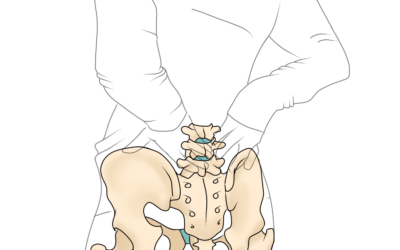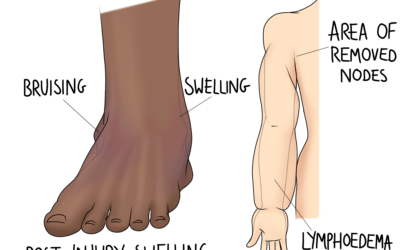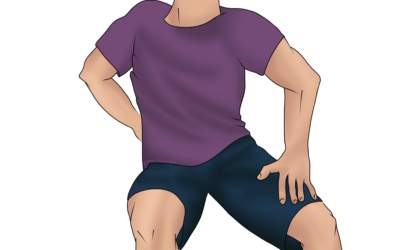There’s nothing like Valentine’s Day to focus the mind on matters of the heart. And while we at the Good Health Centre are looking forward to the cards, flowers and romantic sentiments of the day, we’ll also be thinking about the heart as a vital organ. This 14 February, why not show your heart some love?
Here are the top 10 things you can do to promote good heart health.
Reduce stress
It’s easier said than done, when it can sometimes feel like life does all it can to keep our stress levels high. But nothing puts the heart under greater pressure than stress, so it’s important to find a stress-management technique that works for you. It can be something structured like yoga or meditation, or something unstructured, like going for a walk somewhere away from it all – the important thing is to find something that helps you relax and de-stress.
Ditch the added sugars
Sugar is highly inflammatory, and that’s never a good thing when it comes to the heart. A high-sugar diet can contribute to a range of cardiovascular conditions, so reducing your total sugar intake is a simple strategy for promoting good heart health. Ditch the processed meals (which are often full of ‘hidden’ sugar) and fill your plate with heart-healthy vegetables, lean proteins and healthy fats instead.
Cut down on salt
Salt is another major contributor to cardiovascular problems – and another reason to ditch the ready meals. Too much salt in the diet can lead to increased blood pressure, which puts unnecessary stress on the heart. Many of the processed foods on supermarket shelves contain high levels of salt, so try swapping them out for wholefoods like mineral-rich vegetables, nuts, seeds, bananas and avocados.
Limit alcohol
The health implications of excessive alcohol intake are wide and varied, but the effects on the heart can be substantial. Not only does excessive alcohol consumption contribute to damage to the heart tissues themselves, but the process of detoxification required by the liver can raise the heart rate and act as a stressor. Public Health England recommends a maximum of 14 units of alcohol per week. Reduce your intake in line with that, and you’ll be on your way to a healthier heart.
Reduce caffeine intake
Most people know caffeine is a stimulant – that’s why so many of us reach for a pick-me-up coffee first thing in the morning. But too much of anything can be a bad thing, and caffeine raises the heart rate and acts as a stressor. Limiting your caffeine intake will mean your body is better able to benefit from specific phytonutrients, as well as reducing cardiovascular stress. Swapping out all but your first coffee of the day for a decaf alternative will do wonders for your heart.
Be active
The heart is a muscle, and all muscles benefit from being gently overworked from time to time. One of the easiest ways to promote good heart health is to undertake gentle daily exercise that gets the heart working a little bit harder. Walk to the shops instead of driving. Take the stairs instead of the lift. Anything you can do to add a bit of movement into your day will improve your cardiovascular health and boost your heart’s output.
Laugh and smile more
Who doesn’t love a good laugh? That’s because laughing is one of the best stress relievers there is. It’s also contagious, so try and surround yourself with smiley, happy people. Social studies have shown that those who smile more are not only more likely to feel less stressed, but they generally have improved blood pressure.
Breathe!
It might sound like a silly thing to recommend, because you’re not about to stop your involuntary breathing. But it can be incredibly beneficial to really pay attention to how you breathe. We’re often unaware of how we’re breathing and can revert to taking short, sharp breaths or gasps. Concentrating on your breathing and taking long, slow, deep breaths can be a great way to wind down and relax, which will make for a much happier, healthier heart. Try to introduce some breathing techniques into your daily routine and you’ll feel the benefits immediately.
Sleep well
Poor sleep – and even insomnia – is associated with increased cardiovascular disease, so getting a good, restful night does more for you than simply letting you wake up feeling refreshed. Luckily, there are lots of things you can do to increase your chances of getting a good night’s sleep. Try making your bedroom as dark, cool and quiet as possible, as this will promote restfulness. It’s also a good idea to stay away from all digital devices for at least two hours before heading to bed, as they are prone to whipping us up into a state of heightened stimulation. You could also try meditation or calm time, and even a magnesium-based drink like prune, passion fruit or pineapple juice.
Consider supplements
With the best will in the world, it’s difficult to ensure we’re getting as much of everything our bodies need on a regular basis. Food supplements are a great way to plug any gaps in your nutritional intake, and can help prevent a range of ailments and diseases from developing. Health professionals may even recommend a therapeutic amount of a certain nutrient for some conditions. If you’re predisposed to an increased risk of cardiovascular disease or other heart conditions, it might even be that you require a greater amount of specific nutrients than your diet is ever going to provide. Your doctor will be able to point you in the direction of the right supplement for you.
How we can help:
Here at the Good Health Centre in Leeds, our practitioners offer a range of services to help you on your way to better heart health. Our osteopaths, massage, reiki and reflexology therapists can help you find a way to relax, de-stress, and head back out into the world feeling refreshed and re-energised. Maybe you need help to kick a bad habit or overcome a phobia that is causing you distress? An appointment with our hypnotherapist might be just the thing you need. Or for guidance on implementing all-round healthier eating habits, our nutritionist will be able to help you plan a diet that is good for your heart – and your peace of mind.
Our osteopaths will improve your physical wellbeing, improving your mobility and reduce muscle restrictions which in turn will allow you to perform more cardiovascular exercise. The GHC osteopaths also have bespoke treatment plans to reduce stress and improve overall wellbeing.
Book an appointment with us today, and let’s start showing your heart the love it deserves.



0 Comments